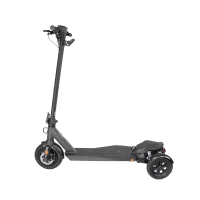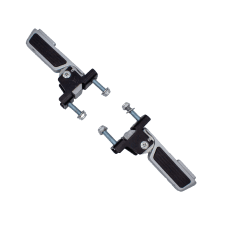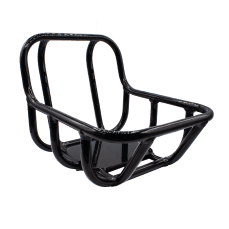Cookies policy
[/vc_column_text][/vc_column][/vc_row][vc_row][vc_column][vc_column_text]When browsing the Site, a cookie may be placed on the Clients' computer in order to record information relating to their browsing such as, the date and time of the consultation and the page or pages consulted. Such information makes it possible in particular to facilitate the subsequent connections of the Clients. Customers may refuse the registration of this cookie including changing the configuration of their browser.
The purpose of this page is to enable the Customer to better understand how cookies work and how to use the current tools in order to configure them.
· Definition
A cookie is a small text file placed on the computer of the user during the visit of a site or the consultation of an advertisement. In particular, they aim to collect information relating to their browsing on the sites and to send them personalized services.
Cookies are managed by the internet browser of the user
- The different issuers of cookies
- LOGICOM cookies
These cookies are deposited by LOGICOM on the user's terminal for the purposes of navigation on its Site, the optimization and customization of its services on the Site.
- Third-party cookies
These are cookies deposited by third-party companies (for example advertising agencies or by partners) to identify the interests of the user through the products consulted or purchased on the Site and customize the offer advertising that is sent to the user on or off the Site.
They can be deposited during the navigation on the Site or when the user clicks in the advertising spaces of the Site.
LOGICOM does not control the cookies deposited by advertising agencies acting on their own behalf.
As part of advertising partnerships LOGICOM may be required to transmit to partners acting on its behalf data on purchases and products consulted by the user on the Site. LOGICOM ensures that the partner companies agree to treat the information collected on the Site exclusively for the needs of LOGICOM and in accordance with its instructions, in compliance with the "Informatique et Libertés" law of 6 January 1978 as amended and undertake to implement appropriate measures to secure and protect the confidentiality of data.
- Different types of cookies
Different types of cookies are used on the Site and have different purposes. Some are necessary for the use of the Site.
- Strictly necessary cookies
These are the cookies necessary for the operation of the Site. They allow to use the main features of the Site. Without these cookies, the user could not use the Site normally. These are cookies deposited by LOGICOM which only concern the operation of the Site.
"Essential cookies" for the use of the Site:
- Analytical cookies
These cookies allow LOGICOM to know the use and performance of the Site and to improve its operation.
These are mainly LOGICOM cookies.
- Functional cookies
These cookies allow you to personalize the experience of the user on the Site (for example recall the latest products consulted, memorize items in the basket before continuing shopping). They also allow you to benefit from personalized advice from LOGICOM and promotional offers depending on the origin of navigation. They can also be used to provide features that the user has requested.
These are cookies deposited by LOGICOM.
The main "functional cookies" used by LOGICOM:
- Advertising cookies
These are the cookies used to present the user with advertisements or send him information adapted to his interests on the Site or off the Site when browsing the Internet surfer. They are used to limit the number of times the user sees an ad and help measure the effectiveness of an ad campaign.
The refusal of these advertising cookies has no impact on the use of the Site. However, refusing advertising cookies will not result in stopping advertising on the Site or on the Internet.
This will only have the effect of displaying an advertisement that does not take into account the interests or preferences of the user.
These cookies are mainly third-party cookies.
These cookies mainly depend on the advertising agencies. LOGICOM can not list them exhaustively. [to be completed as appropriate].
· Accept or refuse cookies
The user has different ways to manage cookies.
- The setting of the internet browser
The user can at any time choose to disable these cookies. The browser can also be set to notify him of the cookies that are stored in his computer and ask him to accept them or not. The user can accept or refuse cookies on a case by case basis or refuse them systematically at one time, and in principle.
The setting may change the user's access conditions to LOGICOM services requiring the use of cookies.
If the user's browser is configured to refuse all cookies, the user can not make purchases or take advantage of essential functions of the Site. In order to manage cookies as close as possible to the user's expectations, LOGICOM invites the user to set his browser, taking into account the purpose of cookies as mentioned above.
Here's how to control or prevent the registration of cookies:
The configuration of each browser is different. It is described in the help menu of the user's browser, which will allow him to know how to modify his wishes in terms of cookies.
The user can disable cookies by following the instructions as follows:
1/ If the user uses the Internet Explorer browser
In Internet Explorer, click the Tools button, and then click Internet Options.
On the General tab, under Browsing History, click Settings.
Click the Show Files button.
Click the Name column header to sort all files in alphabetical order, and then browse through the list until files with the prefix Cookie appear. (All cookies have this prefix and usually contain the name of the website that created the cookie).
Select the cookie (s) with the name "logicom" which must be deleted.
Close the window that contains the list of files, then double-click OK to return to Internet Explorer.
2/ If the user uses the Firefox browser
Go to the Tools tab of the browser and select the Options menu.
In the window that appears, choose Privacy and click Show Cookies.
Locate the files that contain the name "logicom" to select and delete.
3/ If the user uses the Safari browser
In the browser, choose Edit menu> Preferences.
Click on Security.
Click on Show cookies.
Select cookies that contain the name "logicom" and click on Delete or Delete all.
After deleting the cookies, click Done.
4/ If the user uses the Google Chrome browser
Click on the Tools menu icon.
Select Options.
Click the Advanced Options tab and go to the Privacy section.
Click the Show Cookies button.
Locate the files that contain the name "logicom" to select and delete.
Click Close to return to the browser.
- Settings on a platform for managing cookies
The internet user can manage his cookies by visiting cookie management platforms offered by advertising professionals.
For more information on cookies, visit the CNIL website: www.cnil.fr/vos-droits/vos-traces/les-cookies/















